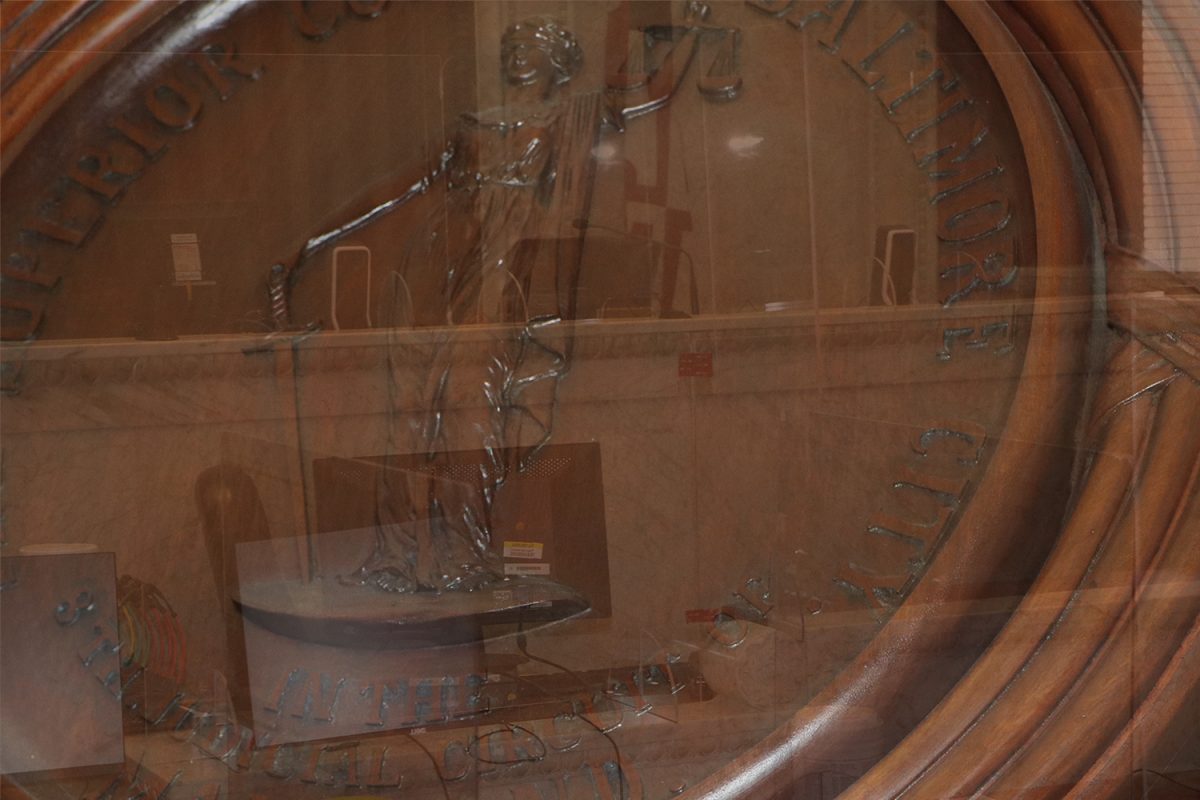
Thank you for reading Baltimore Witness.
Consider making a donation to help us continue our mission.
By
Alyssia Davis [former]
- September 30, 2022
Attempted Murder
|
Court
|
Daily Stories
|
Shooting
|
Suspects
|
Victims
|
An attempted murder defendant’s mother slowly approached the microphone on Sept. 29 to give her statement in hopes of influencing Baltimore City Circuit Court Judge Charles M. Blomquist before she sentenced her son.
“I know he is not perfect, none of us are,” she said to the courtroom. “I don’t understand how someone can be ridiculed. He has a wife and takes care of his kids.”
In May, 39-year-old Domonic White was convicted of first-degree assault, use of a firearm during a felony violent crime, reckless endangerment, discharging firearms, and possession of a firearm with a felony conviction in connection to an incident on April 29, 2021.
A jury found White not guilty of attempted first and second-degree murder for the shooting of his friend and HBO’s “The Wire” actor Chris Clanton last year.
The prosecutor suggested a sentence of 25 years for first-degree assault; a consecutive sentence of 20 years with the first five years without parole using a firearm during a felony violent crime; one year for discharging firearms; a consecutive sentence of 15 years, the first five without parole for possession of a firearm with a felony conviction; three years for having a handgun on his person. The total suggested time would equal 64 years, the first ten without the possibility of parole.
The prosecutor argued that the defendant proves to be someone who cannot stay out of trouble. He has several different prior convictions with three gun convictions, making this one his fourth gun conviction.
The prosecutor said the defendant has shown himself to be someone violent by possessing firearms he knows he is not supposed to own.
White showed no remorse on Thursday despite being found guilty of shooting the victim in front of his 5-year-old son.
He contributed to the violence in Baltimore, said the prosecutor, adding if it was not for the police, White would have killed the victim.
The prosecutor read an impact statement from the victim. “You tried to kill me in front of my little boy,” read the prosecutor. “He has to live with seeing his dad being shot…I hope you get the maximum sentence.”
The victim added, “Eventually you will end up at your favorite funeral home. You live by it, you die by it.”
White’s defense counsel Roland Brown challenged the prosecutor’s portrayal of his client, saying his criminal history did not show that he is a violent person. He instead described White as a loving father to his five kids.
Brown asked the court to sentence White to 20 years, suspending all but ten years without parole for all six charges, which included first-degree assault, use of a firearm during a felony violent crime, reckless endangerment, discharging firearms, and possession of a firearm with a felony conviction.
Prior to the sentencing, White’s defense counsel Roland Brown motioned for a retrial due to a discovery violation. Brown argued that the most damning evidence was a confession video and jail call. Brown said the prosecution held the video for a year after receiving it from the Baltimore Police Department (BPD).
Brown argued that he has had no time to review the video with his client or any time to prepare for a rebuttal. He asked for the court to grant his client a retrial for a discovery violation, a damning effect on his client in this case.
The prosecutor informed the court that he was not the initial prosecutor in the trial but believed that the confession video was turned over beforehand. He argued that the defense had the opportunity to cross-examine the video but decided not to. He then highlighted that despite that, the victim testified that White shot him, in addition to other evidence proving White pulled the trigger.
The prosecutor disagreed and said there was no discovery violation and the video had already been authenticated.
Judge Bloomquist ruled that the prosecutor’s failure to disclose the jail call may have had some violation; however, the defense’s motions pertaining to discovery violation and the jail call were denied.
After listening to counsel and impact statements, Judge Bloomquist sentenced the defendant to 45 years with the first ten years without parole.
Read more about this case here.
